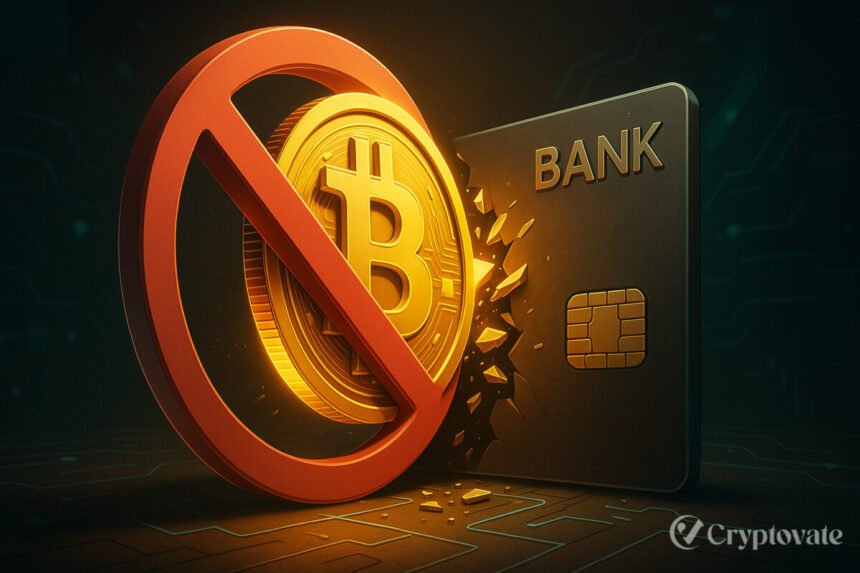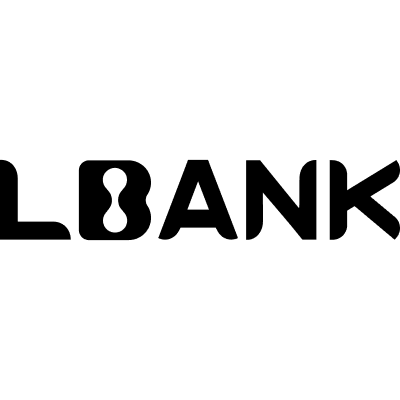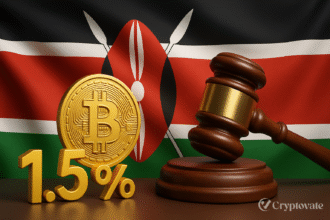– Ad –
| Getting your Trinity Audio player ready... |
Crypto debanking persists even as political leaders adopt more supportive policies toward digital assets. Despite public endorsements and regulatory shifts intended to ease access to banking for the crypto industry, many companies still report unexpected account closures and service disruptions.
Why Crypto Debanking Persists Despite Political Support
Under the Trump pro-crypto push, industry advocates anticipated smoother relationships between banks and digital asset firms. However, reports indicate that several major institutions continue to close accounts without warning, citing internal risk policies and compliance concerns outlined by the Office of the Comptroller of the Currency (OCC) and FinCEN.
This ongoing practice is increasingly referred to as Operation Chokepoint 3.0—a systemic approach where certain financial service providers limit or deny banking access to cryptocurrency-related businesses. Although recent political commitments have aimed to reduce such restrictions, the structural processes within traditional banking systems have yet to align with this vision.
Many affected companies operate fully within regulatory frameworks, often maintaining compliance with Federal Financial Institutions Examination Council (FFIEC) standards, yet still face crypto firms account closures. This points to a deeper issue: institutional hesitancy to engage with the crypto sector due to perceived volatility, fraud risks, and regulatory uncertainty.
Impact of Banking Resistance to Crypto
When crypto debanking persists, it creates serious operational challenges. Startups and established platforms alike are forced to seek offshore banking partners or alternative payment solutions, often at higher costs and with slower transaction times.
Banking resistance to crypto also impacts market confidence. Investors may hesitate to fund projects that lack stable financial infrastructure, while innovators face delays in launching new products. Furthermore, the persistence of these restrictions undermines broader goals to make the United States a hub for digital asset innovation.
Without resolution, the gap between political rhetoric and actual banking practices could widen, leaving crypto firms in a prolonged state of financial uncertainty.
Also Read: Trump Greenlights Crypto in 401(k) Retirement Plans
FAQs
What does “crypto debanking persists” mean?
It refers to the ongoing practice of banks closing accounts or denying services to crypto businesses, even when they operate legally.
What is Operation Chokepoint 3.0?
It’s an informal term for the continued systemic blocking of certain industries, including crypto, from traditional banking services.
How can crypto companies avoid account closures?
By working with known crypto-friendly banks, maintaining strong compliance documentation, and diversifying payment channels.

















